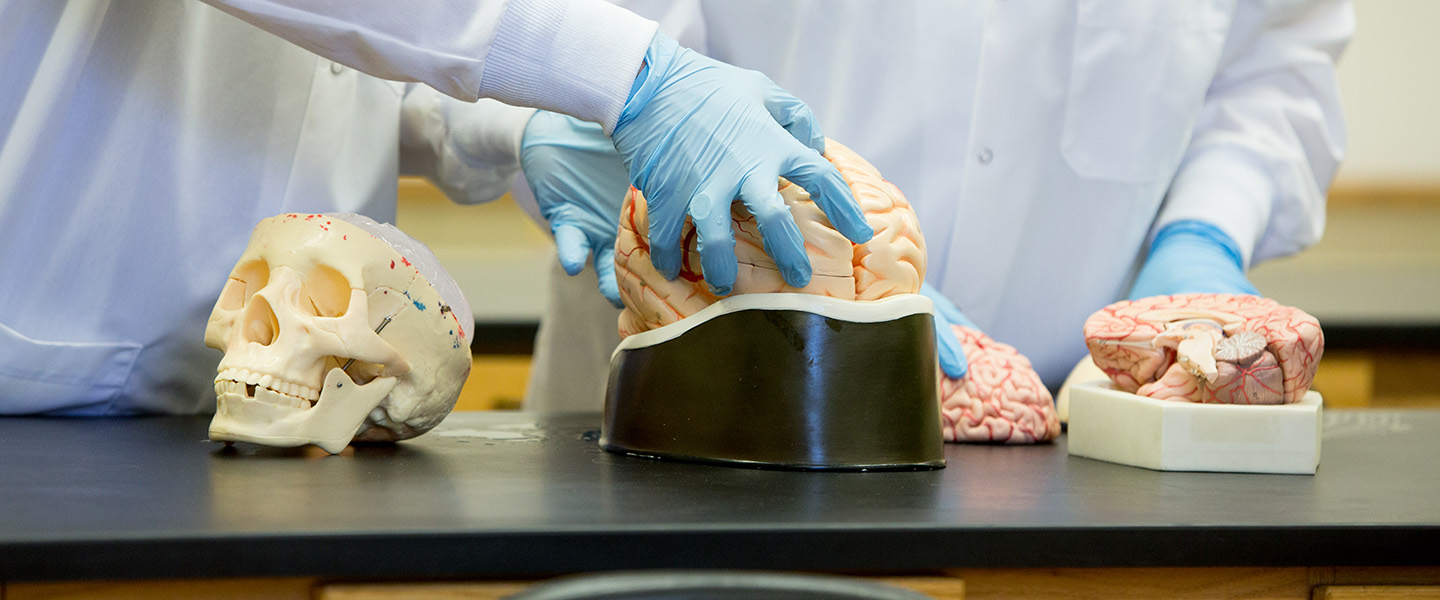The psychology major emphasizes the scientific approach to the study of human and animal behavior through the synthesis of the natural and social science aspects of the discipline. In addition to taking content courses in both knowledge bases, students are encouraged to understand and "do" psychology by becoming involved in research. Laboratory courses and the senior thesis enrich our students' understanding of the methods of core areas of psychology and develop the skills of critical thinking and expression. Students will demonstrate an understanding of the interrelatedness of the different fields of psychology, the relationship between psychology and other disciplines, and the application of principles of psychology to solving real-world problems.
To major in psychology you are required to take courses introducing you to the scientific study of mental processes and behavior of both humans and animals, quantitative methods, and research methods; laboratory courses from among developmental, personality, learning, and physiological psychology; and the year-long senior research seminar. The rest of your program is tailored to your individual goals. If you are business-oriented, you may choose such courses as industrial/organizational psychology, social psychology, and motivation. If you hope to become a professional psychologist or counselor, you might include personality, developmental psychology, abnormal psychology, and clinical psychology in your course of study. If you are interested in pursuing a career as a research scientist in psychology you may focus on such courses as learning, cognitive psychology, and behavioral pharmacology.
With a faculty that is actively involved in research and a sophisticated neuroscience and experimental research laboratory, students have the unique opportunity to pursue independent study and research.

 Brian Mackey went on to get a Master’s and a PhD from Tulane University. He is a licensed school psychologist and is currently the Director of Operations for 3-C Family Services in Cary, North Carolina. Over the years, he has worked in public and private school systems in Louisiana, New Jersey, and North Carolina. Dr. Mackey has worked extensively with children and adolescents with special needs in the areas of conduct, anxiety, depression, learning disabilities, and self-esteem. His active, child-centered therapeutic techniques are designed to assess and treat the functions of problem behaviors, not just their symptoms. He has also served as an educational advocate, working with parents to ensure that their children are receiving the most appropriate and effective services from the school system.
Brian Mackey went on to get a Master’s and a PhD from Tulane University. He is a licensed school psychologist and is currently the Director of Operations for 3-C Family Services in Cary, North Carolina. Over the years, he has worked in public and private school systems in Louisiana, New Jersey, and North Carolina. Dr. Mackey has worked extensively with children and adolescents with special needs in the areas of conduct, anxiety, depression, learning disabilities, and self-esteem. His active, child-centered therapeutic techniques are designed to assess and treat the functions of problem behaviors, not just their symptoms. He has also served as an educational advocate, working with parents to ensure that their children are receiving the most appropriate and effective services from the school system.